Post
A catch
Save a catch to start your fishing logbook. You will be able to to share it with the community if yo want!
A fishing trip
Post an ad to go fishing with other fishermen
Save a catch to start your fishing logbook. You will be able to to share it with the community if yo want!
Post an ad to go fishing with other fishermen
Share a thought, a question with the community
My favorite cities
×Join our 166 fishermen in Strone in Highland. The fishing forecast is currently 4.4. The most caught fishes here are the rudd fish, the perch, the strerlet fish and the roach fish . Come try the most famous fishing techniques like the throw fishing for royal bream, float fishing (plug), angling bass with surface lures or tips on material to catch bass on plug from the shore.
Our fishing forecast of Strone indicates the best time to go fishing in this city.
The Rudd fish
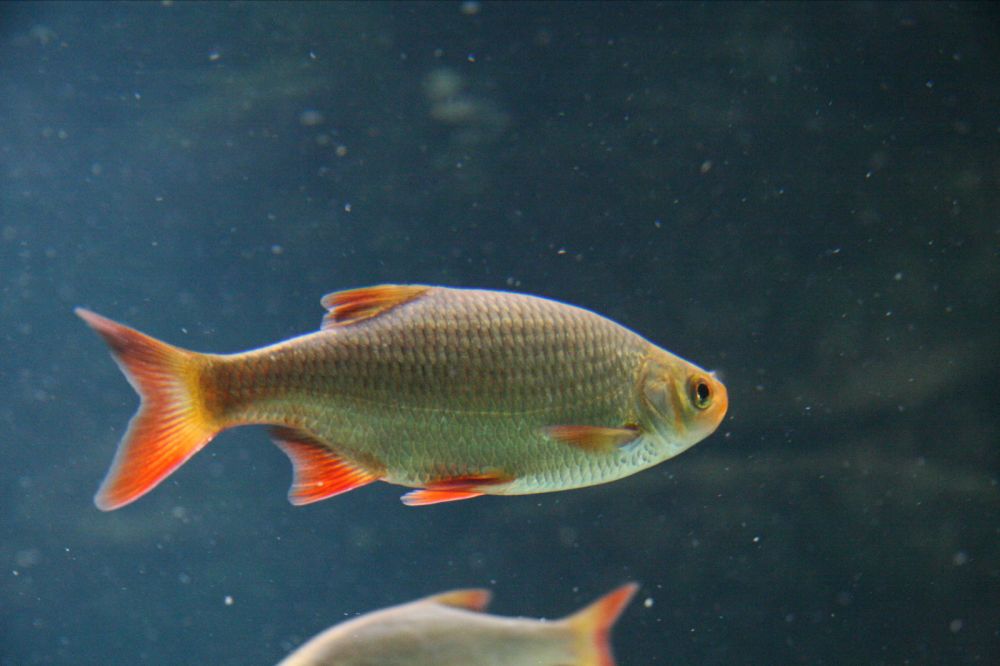
The Rudd fish belongs to the Cyprinidae family. The current size of the rudd fish is 15 to 30 cm for a weight of 0.5 to 1 kg. It can reach nearly 51 cm in height and weigh 2 kg. The rudd fish can live about 17 years. Egg laying is split and takes place from April to June. The female lays 100,000 to 200,000 eggs. Fishing for rudd is allowed all year round. It is easily identifiable by the diver: the silvery appearance of its body. A closer look at the position of the dorsal and ventral fins will then make the difference between the two species. If the ventral fins are placed further forward than the dorsal fin, it is the ratchet. The mouth, small, terminal, opens obliquely upwards. The back of the rattlesnake is brownish green, the sides and belly are silvery. The iris of the eyes is yellow with golden reflections. Dorsal, anal and pelvic fins are bright red in color.
The Rudd fish is a famous fish you can catch in Strone.The Perch
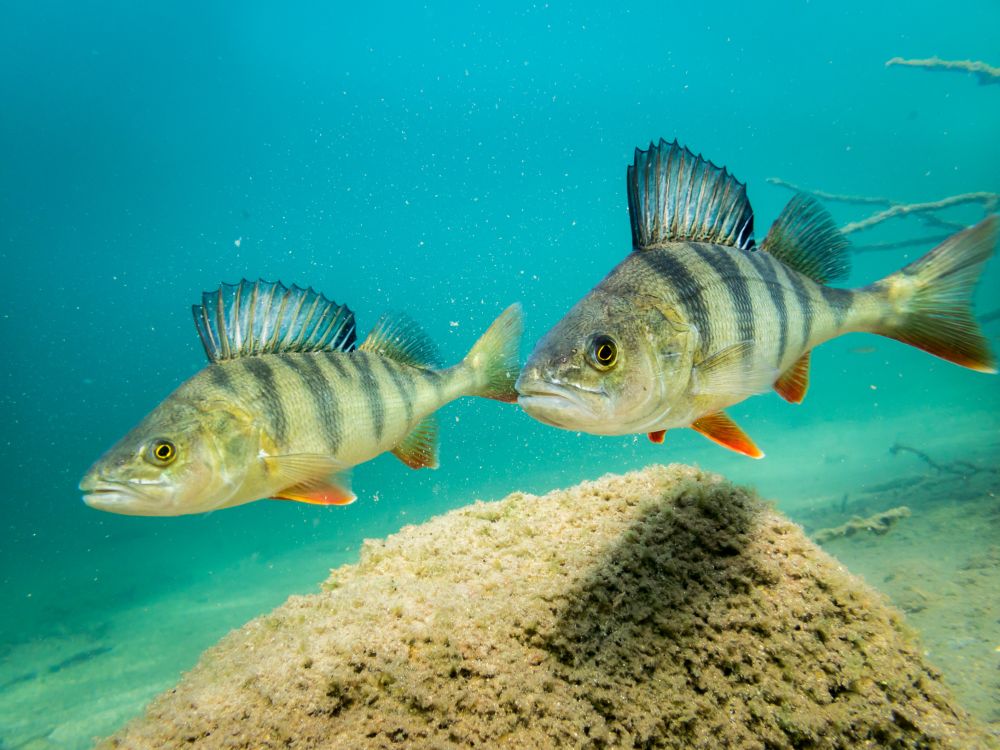
The Perch fish belongs to the Percidae Family. Its size, on average 15 to 20 cm, can reach 60 cm for a weight of 4.5 kg. Life expectancy is about 6 years (maximum 22 years). The perch spawns in April and lays between 4000 and 300,000 eggs. It is caught from June to December. Its body is stocky, high, yellow-green with broad transverse stripes; the belly is yellowish to matt white. Its ventral, anal and caudal fins are red; the anterior dorsal fin has sharp rays and a black spot on the back. Its operculum is finished by a strong thorn.
The Perch is a famous fish you can catch in Strone.The Strerlet fish
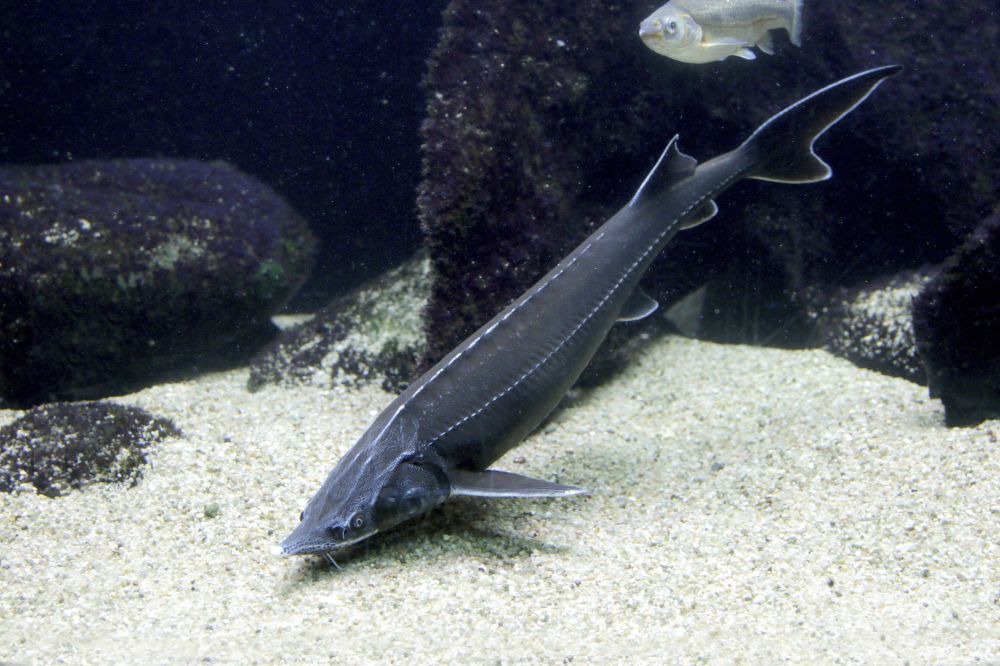
The Sterlet fish belongs to the Acipenseridae family. The Sterlet fish measures about 3.50m in length and weighs 300kg. It can live a hundred years. Females lay more than 800,000 eggs on the gravel. Spawning season is around May to June. It can be fished all year round. The back and sides are grey to beige, the ventral and lateral parts are lighter (almost white). Five longitudinal rows of large bone plates are arranged along the body. The upper lobe of the caudal fin is more developed than the lower lobe. The muzzle is narrow, pointed and raised upwards with four long fringed barbells. The lower lip is notched in the middle. The Sterlet fish has a protractile mouth placed on the underside of the head.
The Strerlet fish is a famous fish you can catch in Strone.The Roach fish
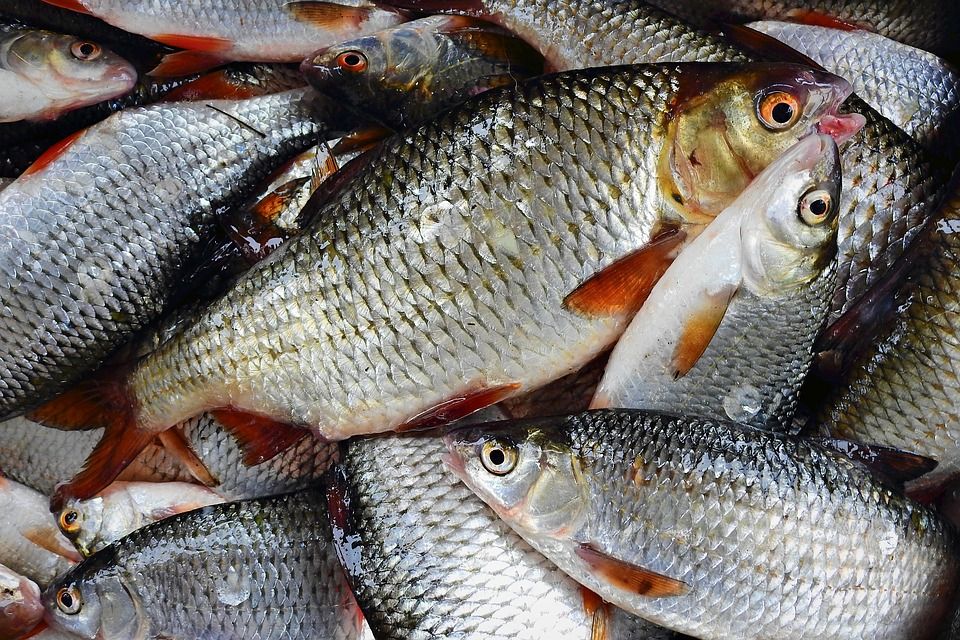
The Roach fish belongs to the Cyprinidae Family. The current size is 10 to 30 cm and the weight is 10 to 200 g. Some individuals can reach 50 cm for a weight of 2 kg. Life expectancy is about ten years (maximum 14 years). The breeding of the roach takes place from April to June/July. Fertility is 350000 eggs per kg of weight. It can be fished all year round. Roach is one of the most common and widespread fish in slow-moving lakes and rivers. It lives in schools of individuals of approximately the same size. These benches can be composed of hundreds of roaches. It is easily identifiable by the diver: the silvery appearance of his body, the eyes and red fins allow him to identify roaches and rotengles. A closer look at the position of the dorsal and ventral fins will then make the difference between the two species. If these two fins are upright, it is the roach.
The Roach fish is a famous fish you can catch in Strone.The Gwyniad fish
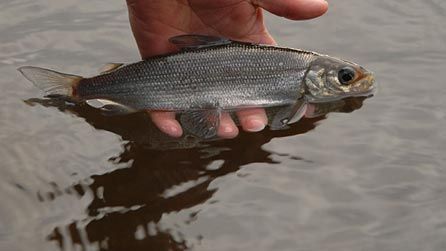
The Gwyniad fish belongs to the Salmonidae family. It is a fairly large species: 40 to 60 cm. It reaches 70 cm for 10 kg in the large lakes of northern Europe. Life expectancy would be about ten years. Its breeding period extends quite widely between 15 November and 31 January with a maximum activity between 10 December and 1 January. The female lays 30,000 eggs per kg of weight. This fish is on the IUCN Red List. Fishing is therefore prohibited. It has the fat fin characteristic of Salmonidae. It has an elongated body, silvery grey, bluish grey, with a more or less brownish back and fairly large scales. The caudal fin is very indented. The mouth is small. Two details that differentiate it from other salmonids. The number of gillospines (here 15 to 70) confirms that they belong to that species. The male has prominent scales on the lateral line, rough to the touch.
The Gwyniad fish is a famous fish you can catch in Strone.Our fishing forecast of Strone indicates the best time to go fishing in this city.
Our fishing forecast of Strone indicates the best time to go fishing in this city.
Our fishing forecast of Strone indicates the best time to go fishing in this city.
